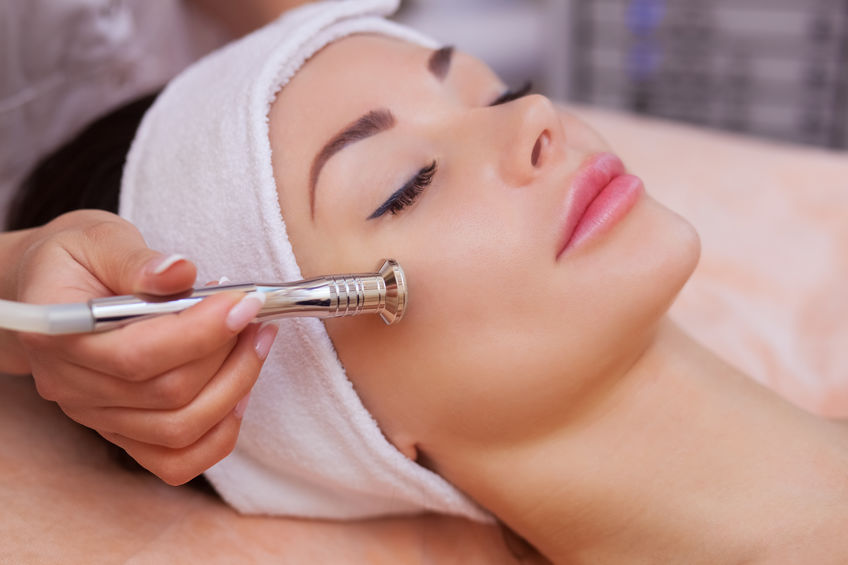Microdermabrasion in Canterbury

Microdermabrasion is a superb skin resurfacing treatment that will leave your skin looking brighter, younger and less blemished.
It is especially suited to ageing, dry, oily, dull, congested or blemished skin as it will improve the appearance of pigmentation, scarring, fine lines and open pores.
Using specialist equipment, microdermabrasion propels miniature grains across the skin’s surface to remove layers of dead skin cells.
The emergence of newer cells results in younger looking skin that is softer, tighter, brighter and smoother.
Regular microdermabrasion treatments at Blakes Beauty Salon in Canterbury are recommended for optimum results and we may recommend you combine this treatment with a prescribed Dermalogica skin product for maximum effect. Indeed, many people have a ‘one off’ treatment before an event like a wedding or special occasion to ensure their skin looks its best.
The Best Anti-Aging Microdermabrasion Treatments Near ME
Canterbury
Whitstable
Herne Bay
Ashford
Folkestone
Dover
Faversham
Microdermabrasion Treatments for Wrinkles & Age Spots
Microdermabrasion can be used to target all skin irregularities all over your body including:
- Fine lines and wrinkles including delicate areas around the eyes
- Sun-damaged, uneven and thickened skin
- Pigmentation
- Acne scarring
- Enlarged pores and dull skin
- Congested skin
- Uneven skin tone
- Stretch marks.
How Much Does A Microdermabrasion Treatment Cost?
A 30 minute session costs £41, 60 minutes costs £56.
Book A Microdermabrasion Consultation in Canterbury
Book a free in-depth consultation where can assess your skin’s needs and recommend the perfect treatment to improve your appearance. Call our Canterbury beauty salon 01227 768418 or book online using the pop up button.
Microdermabrasion FAQs
What is microdermabrasion?
«Microdermabrasion is a non-surgical procedure which gently removes dead skin cells on the outer surface of the skin.
Using gentle abrasion from hundreds of microcrystals in a small stainless steel head, the treatment removes layers of dead skin cells from all areas of your face and body. At the same time, elastin and collagen fibres are stimulated by light suction, which also removes the old skin cells. The result is visibly smoother, softer, firmer and more radiantly youthful skin.
Our trained therapists work with several different sizes and specifications of microdermabrasion head and will specially select the correct combination to suit your skin, either on your face or elsewhere on your body.
What can microdermabrasion treat?
«Microdermabrasion can help in the treatment of a wide range of skin concerns, including:
- Fine lines and wrinkles including the delicate area around the eyes
- Sun damaged skin
- Uneven pigmentation
- Acne scarring
- Enlarged pores and dull Skin
- Inflamed and congested skin
- Stretch marks
How soon will I see results from a microdermabrasion treatment?
«We recommend a course of treatments for best results, but you will see an immediate improvement after just one treatment.
Many people book a ‘one off’ treatment to brighten their skin and make sure it looks its best before a special event like a wedding or other important occasion.
Is microdermabrasion suitable for all skin types?
«Microdermabrasion can be used for nearly all skin types and on all areas of the body and face.
At an initial consultation we will discuss your skin concerns and advise you further.
Are there any side effects to microdermabrasion?
«Microdermabrasion is a safe and gentle treatment, but immediately afterwards your skin may feel slightly tight with mild redness. It's important that you use a good moisturiser with SPF after your treatment - we will provide you with full after care advice when you come in for your consultation.
How often should I have a microdermabrasion facial treatment?
«For best results we recommend a series of treatments at 4 weekly intervals. After this, treatments are usually carried out every 8 to 10 weeks.

